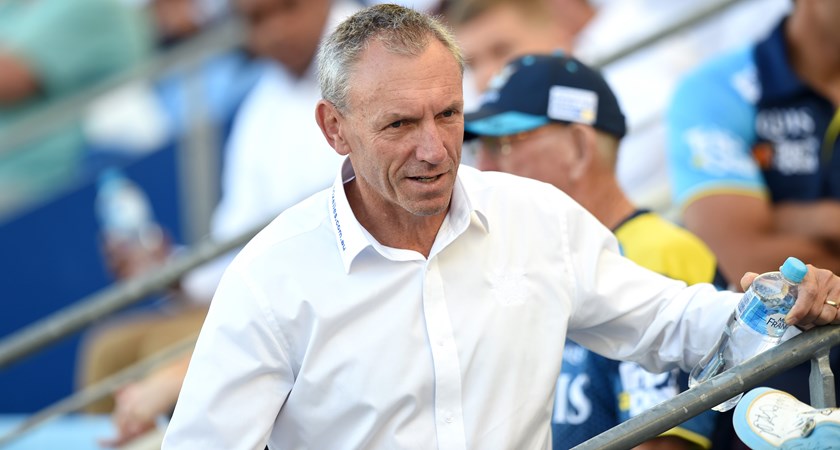I wasn't sure how it worked, then I read this article. Unless the rules have changed, which may have happened, it looks like they are. The article is from 2018
https://www.nrl.com/news/2018/02/05/winning-starts-monday-nrl-coaches-get-extra-job-security/
Canterbury-Bankstown Bulldogs officials may have avoided playing this season with up to $1 million less than rival clubs for football department spending by parting ways with Des Hasler last September.
While the Bulldogs could still be forced to pay $1 million to Hasler if he succeeds in legal action against the club, the amount won't be included in the new NRL football department salary cap.
However, any coach sacked this year will have his wages or any financial settlement counted as part of the club's $5.7 million ceiling on football department expenditure, along with the cost of hiring a replacement.
In addition, clubs who exceed the football department salary cap will be liable for a 37 per cent luxury tax on the amount they have overspent.
As a result, the football department cap is set to provide NRL coaches greater job security than ever before.
In the three years since the AFL introduced a football department salary cap, only two coaches have been sacked while under contract – Carlton's Mick Malthouse in 2015 and Brisbane's Jason Leppitsch in 2016.
Gold Coast Suns coach Rodney Eade was told at the end of last season his contract would not be renewed, while Paul Roos handed over the reins to his Melbourne assistant Simon Goodwin in 2016 after deciding to retire.
The only other changes to the AFL coaching ranks since 2015 have been Don Pyke taking over at Adelaide following the death of Phil Walsh, and John Worsfield replacing James Hird at Essendon after he resigned.
In contrast, Hasler was one of four NRL coaches shown the door last season, along with Jason Taylor (Wests Tigers), Michael Maguire (South Sydney Rabbitohs) and Neil Henry (Gold Coast Titans).
Former Gold Coast Titans coach Neil Henry.

Scott Davis/NRL Photos
Up to five NRL clubs, including the Bulldogs, are already looking to cut football department spending to comply with the new salary cap, which includes all costs associated with the first-grade team, except player payments.
The Bulldogs and other big-spending clubs averaged about $8 million per year in football department expenditure – almost double that of the Titans.
The disparity among clubs is also demonstrated by the number of football department staff they employ, which ranges from 13 to 23 and averages 16 across the NRL.
This includes staff employed in:
- Coaching
- Performance
- Football operations
- Medical
- Welfare
- Recruitment
With football department spending having increased by more than 12% per annum for the past five years, the new salary cap is intended to ensure financial sustainability for the clubs as well as provide an equalisation measure.
The cap was first mooted during negotiations for an annual grant to clubs valued at 130% of the salary cap for players, amid concerns the surplus would be absorbed by increased football department spending.
Club chairs and CEOs agreed to a 4% CPI increase for each of the next two seasons on the $5.7 million football department cap introduced this season.
If the cap had been set higher it would have had little impact on curbing costs, while a number of clubs – including Cronulla Sharks, Wests Tigers and the Titans – are expected to increase their spending.
The salaries of head coaches and all ancillary staff are included, as are training camps and operational costs, including gym equipment.
However, capital expenditure is exempt to encourage clubs to invest in high-performance facilities or centres of excellence.
The 37% luxury tax is likely to increase in coming seasons as breaches in the AFL attract a fine equating to 75% of the amount by which a club has exceeded the football department cap.
Unlike the AFL model, clubs voted against distributing the luxury tax imposed for breaches of the football department salary cap among rival clubs.
The move is expected to save the clubs about $10 million per season but penalties for breaches will be phased in gradually until 2020 to give the big spenders time to adjust.


 Scott Davis/NRL Photos
Scott Davis/NRL Photos
